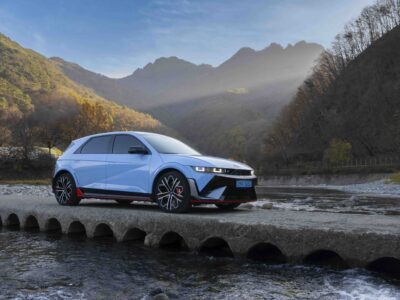The West Virginia Department of Transportation has completed a proposal for the future of electric vehicle (EV) charging stations in the state. The plan ties the Mountain State into the federal government’s National Electric Vehicle Infrastructure Formula program, which stipulates one charging station for every 50 miles of interstate. Officials hope implementing it will bring numerous new jobs and make the residents’ use of EVs easier. The U.S. Department of Transportation recently approved West Virginia’s plan.
“America led the original automotive revolution in the last century, and today … we’re poised to lead in the 21st century with electric vehicles,” said Pete Buttigieg, Secretary of Transportation. “We have approved plans for all 50 states … to help ensure that Americans in every part of the country — from the largest cities to the most rural communities — can be positioned to unlock the savings and benefits of electric vehicles.”
Phase one of the new West Virginia plan includes a list of the proposed locations for the charging stations and how the state will use the federal funds to design and build the stations along interstates and highways.
Nearly $46 million in federal funds over five years — a part of the Infrastructure Investment and Jobs Act — will help the state build out these stations and set up the business needed to run them.
Stations will be placed along the major thoroughfares in the state, including Interstates 64, 77, and 79 through Charleston, Interstate 81 near Martinsburg, Interstate 70 around Wheeling, and various points in Beckley, Morgantown, Flatwoods, and Weston. Phase two of the plan expands station locations to include publicly-accessible sites designed to increase EV access and jobs in disadvantaged communities.
West Virginia plans to use the federal funding to update and construct new charging stations and signage and encourage the community to get more involved in the project. Data sharing and mapping activities will also eventually be available to the public.
West Virginia has only 14 stations with 28 charging points for electric vehicles. It ranks 46th in the nation regarding EV ownership, with only the Dakotas and Wyoming ranking just behind. The new plan not only links the state to the national network of charging stations but also encourages local adoption of EVs.
Designed to help move the U.S. closer to its 2050 net zero emissions goal, this EV infrastructure will ensure that a charging station is always nearby for locals and travelers alike. By improving the reliability of the national charging network, the plan is a significant part of creating a cleaner, more sustainable future for the country.





